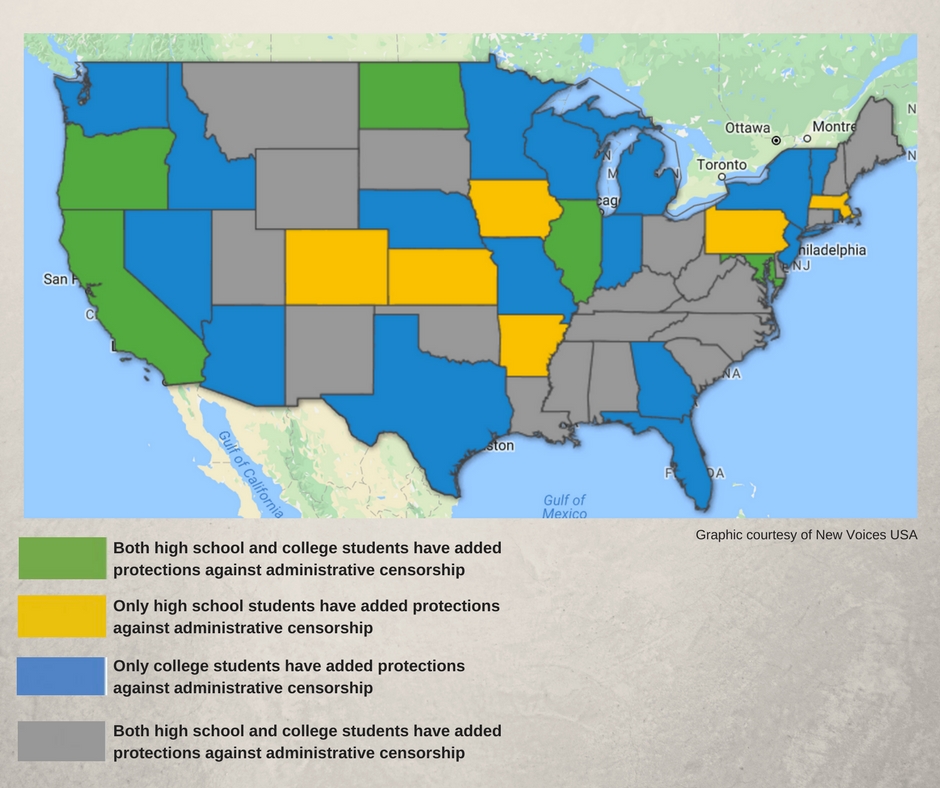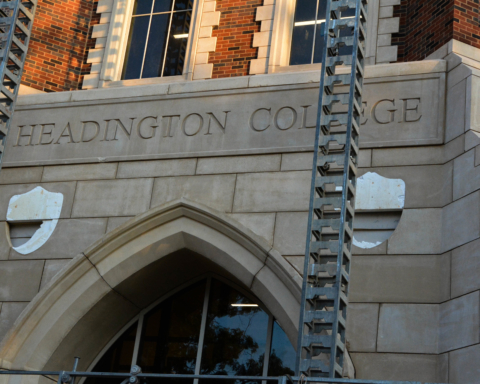Across the country advocates for student free speech are pushing for new laws to combat censorship and protect free speech for high school and college students.
In about 30 states, student speech advocates are pushing forward legislation that would roll back a 1988 Supreme Court ruling that empowered school administrators to strongly regulate student expression. The multi-state effort is broadly called New Voices.
Eleven states have now passed New Voices legislation that aims to protect high school and/or college students from censorship and 19 more states have legislation in the works. While Oklahoma is not among those states, there are stirrings of advocacy including a letter campaign to student journalism advisers at the college and high school level.
At its core, the New Voices bills seek to change the rules about what student speech is protected and shift the national standard to what was in place before the 1988 Supreme Court ruling in Hazelwood School District v. Kuhlmeier, in which the court held that student newspapers are entitled to a lower level of First Amendment Protection.
In that case, the Hazelwood principal prevented students from publishing stories about teen pregnancy and about divorce because he objected to the content. The Supreme Court sided with the administration, setting a new standard for student free speech.
Judy Gibbs Robinson, adviser to OU’s student newspaper the Oklahoma Daily, is among those trying to raise awareness about the New Voices efforts with state journalism educators. She penned a letter to high school journalism advisers, urging them to learn about the New Voices effort and to get involved.
Although she has assurances that University President David Boren would not censor OU student publications, she said she thinks this is an important issue to address at the state level
“(I) don’t want students to come here (who) accept censorship,” she said.
But Gibbs Robinson said she also knows the battle needs to be championed by the people most affected.
“New Voices isn’t my fight,” she said, adding that students need to be learning about the issue and taking up the legislative battle.
Backers of the New Voices legislation want to return states to following the so-called Tinker Standard based on Tinker v. Des Moines Independent School District. In that 1969 case, three students wanted to wear black armbands and fast in protest of the Vietnam War. School administrators prohibited the wearing of armbands and suspended the students when they defied this rule. The court ruled that the students were expressing opinion with their actions and exercising a protected right to free speech.
As part of the New Voices effort, advocates have created a website that provides state-by-state information about the issue and tracks related legislation.
For more information, visit the New Voices Oklahoma website.






